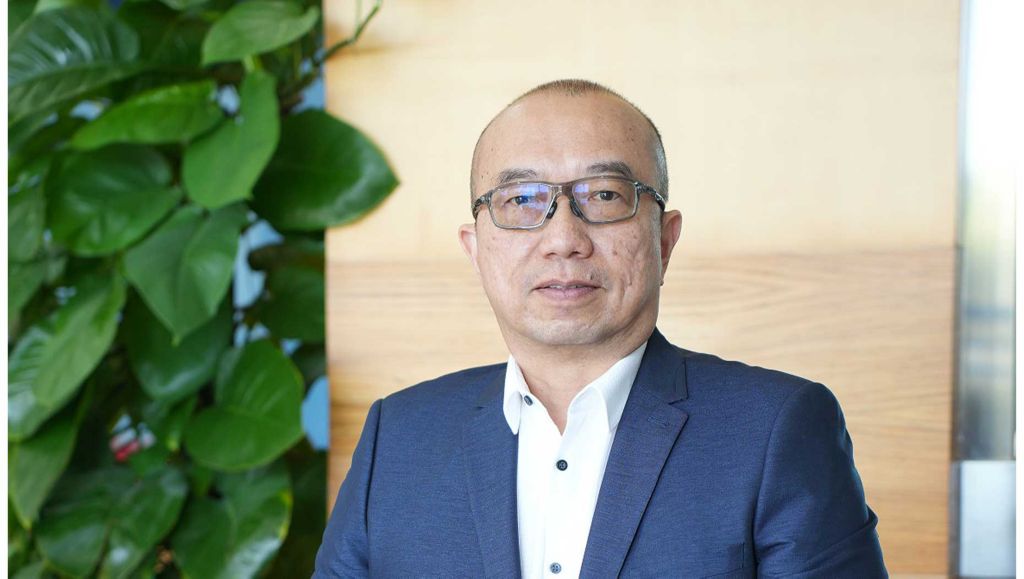Volvo Buses’ Assessment of Malaysian Business


While the pandemic may not have been officially declared as over in Malaysia, business is certainly rebounding, with measures to boost the transport sector on the cards. Volvo Buses Malaysia has readied itself and is now poised to respond to the changing market needs. Asian Buses spoke exclusively with Mr Marcus Mak, Country Manager, Volvo Buses Malaysia to find out what the brand has in store.
As a manifestation of the changing times, one will have heard about a tender being announced for the purchase of 100 + (exact numbers could not be obtained) electric buses by PRASARANA. The purchase of such buses would herald the beginning of a new era in public transport for Malaysia. Volvo is fully ready for this shifting of market requirement with the readiness of our various product. Volvo have a full range of products with the options of diesel, diesel hybrid and full electric bus. All these buses are already in operation in the region and with a good service record.
To support the re-opening of the economy, Volvo Buses offered health checks for buses and programmes to assist operators to re-activate their buses after sitting idle for the duration of the lockdowns. Now that Volvo’s bus population is back on the roads. Observation has proven that this is the right approach as one can see an increase in breakdowns of vehicles after they have been idle for some time. Therefore, these health checks, although requiring the buy-in from the operators, are crucial to ensure maximum uptime. Without having the proper service support, the product life cycle will be cut short thus indirectly increase the total cost of ownership.
Echoing the comments from Coachbuilders Asian Buses has interviewed, Mak confirmed that Volvo Buses is seeing an increase in enquiries received. Express coaches are currently in higher demand as this segment of the industry is back in full swing and operators are looking to add new routes. Mak notes that operators previously active in Kota Baru only, are now considering adding routes all the way to Johor Baru and even Singapore. In addition, after a drastically reduced usage during the pandemic, many buses are now reaching their end of life and will need to be replaced. “Typically, these buses are replaced after around seven years, however we are also seeing a number of customers that are opting to replace them earlier,” he said.
In view of the travel patterns of Malaysians, Mak opines that an increase in buses operating on long-distance routes will make a difference as congestion will be eased. During the 2023 Exodus from major cities during Aidilfirti, the government deployed additional buses to ease the traffic jams, however even these additional 256 buses the government has activated during the festive season may not have been sufficient. “We see an opportunity here as we can help build a better public transportation system. Unless there is a reliable and effective public transportation system in place, the general public will opt for cars for their daily commutes, and they will opt for personal vehicles by default for special trips.”
It can be observed that the electrification of transportation has allowed many new brands to enter the market. Malaysia is no stranger to emerging brands that would now compete against established players like Volvo. However, Mak points out that the creation of a new vehicle is the easy part: “It is the 15 years a vehicle is in operation that you need to support it and make sure that it is serviced properly and offers maximum uptime.” Some of PRASARANA’s vehicles are still in operation after 16 years, thanks to the excellent support network and supply chain for spare parts.
Electrification also calls for a re-alignment of talent within the organisation. Besides attracting new talent, ready to meet the changed demand from the market, Volvo Buses is also re-training existing staff. Technicians are being trained on the high-voltage systems found in battery electric buses. “We are upskilling our talents to be ready for this pivot in the industry.” As the company is getting ready to provide the services associated with electric vehicles, the key issues to be addressed are still the limitations in range and charging infrastructure. “One issue we have managed to resolve is the supply chain disruption during the pandemic and when it comes to order fulfilment, we are back to what it was before the Covid 19 crisis.”
While the implementation of electric vehicles is still in the phase of early adaptors, internal combustion engines (ICE) are still the main drivers of buses. For now. This however means that Volvo Buses also needs to upgrade the offer whereby the introduction of EURO V engine technology is imminent. In addition, Volvo Buses will be ready to offer electric buses shortly, with hybrid buses being an option that operators can also consider as a greener alternative to ICE-powered vehicles. Limitations in terms of financing and infrastructure are stumbling blocks Mak and his colleagues have identified. For instance, in Peninsular Malaysia, power is not produced in the most sustainable ways, hence the problem of pollution is merely shifted from the user to the producer of electricity.
Assessing the market in its entirety, Mak said that there are a lot of opportunities offered by the re-start following the pandemic. With some consolidation in the market, additional routes being in demand and new technology now becoming viable, the bus segment is highly dynamic. Going forward, the expectation is that the market is growing as the demand for bus transportation will increase. Mak himself hopes to be able to get on board of one of the newly launched Volvo low-entry double deck buses to travel from Johor to Kota Baru to fully experience the comfort and build quality of the vehicle.
Disclaimer:
Thanks to Asian Buses for the collaboration in developing this article